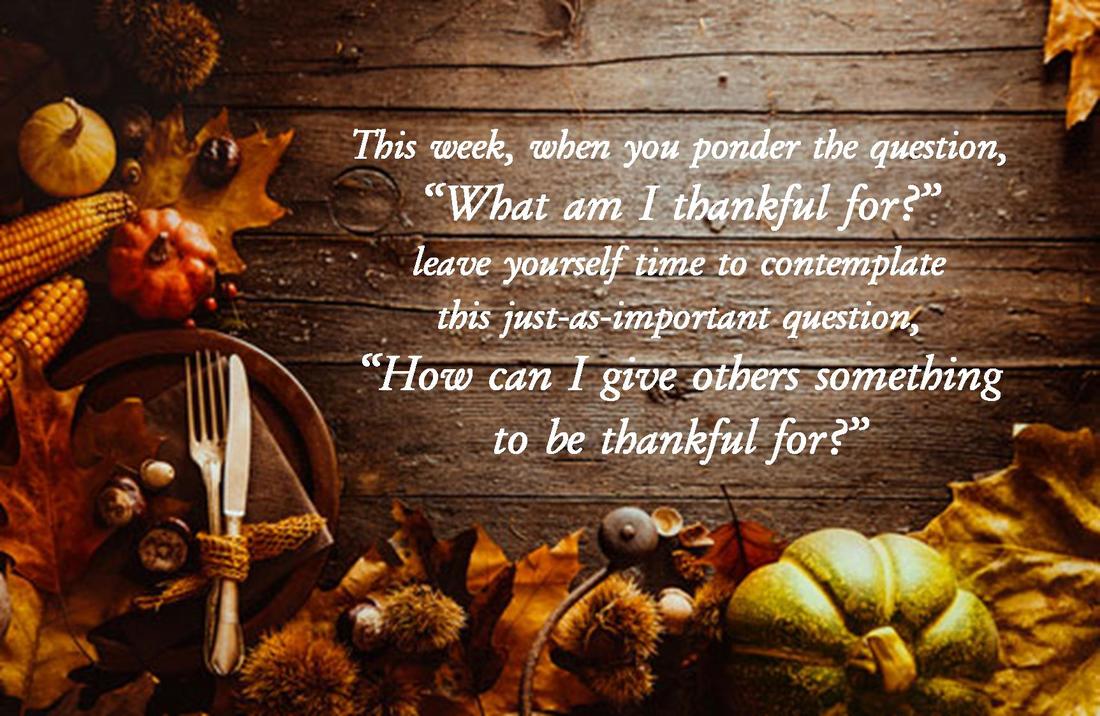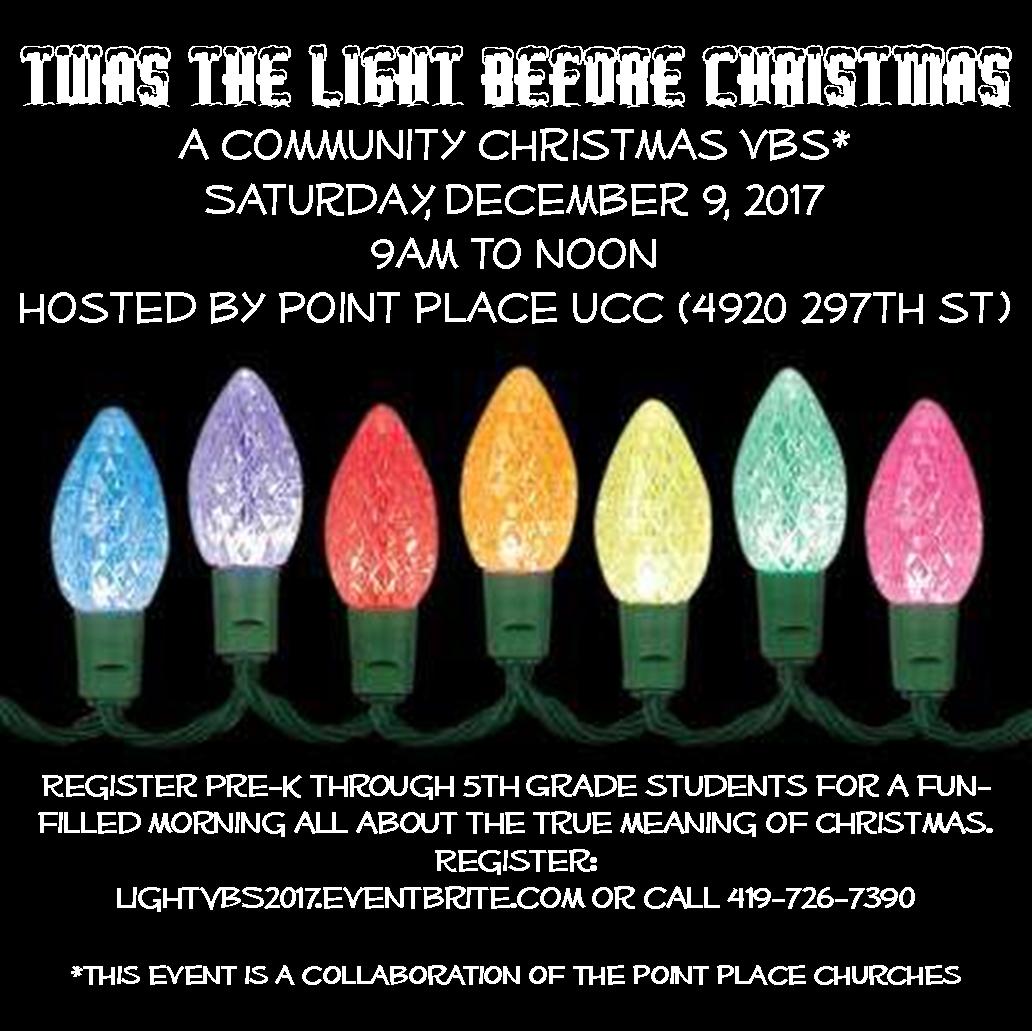| This reflection was delivered by Pastor Jon at the Point/Shoreland Community Thanksgiving Service on Sunday, November 19. It was based on the text from 2 Corinthians 9:6-15. We encourage you to use it an any form as a devotional or conversation starter at your Thanksgiving meal or gathering this week. |
In some ways, this Scripture checks the boxes for a perfect Thanksgiving text. It talks about harvesting and God’s provision, and most importantly, it has the word “thanksgiving” in it.
Except when you read more closely, you see that it is more about giving to others than it is about counting our own blessings. It is actually more about sowing than it is about reaping. And very concretely, Paul has been encouraging the Corinthian Christians to give their money to support impoverished Jewish Christian saints in Jerusalem. The thanksgiving Paul mentions? It’s probably more about the gratitude of those saints who will receive that financial support than about the gratitude of those Paul is asking to give. Which is not to say that the more financially stable Christians in Corinth don’t have plenty to be thankful for, nor that they won’t benefit spiritually from their own generosity. After all, Jesus said “it is more blessed to give than to receive.” But if I am to reflect on THIS text tonight, the message is this: God has created and called us to be farmers who produce a harvest justice, peace, and thanksgiving in this world.
And if I am to preach THIS text to you tonight, here is my encouragement: when you ponder the question, “What am I thankful for?” this week, leave time to contemplate this just-as-important question, “How can I give others something to be thankful for?”
Ask: How can I get my material possessions to someone in need through Mustard Seed or a church or just by giving it directly to someone you know needs it—remember, whether you get to hear their “thank you” or not, God does and it belongs to him anyway.
Ask: How can I use my words or time or presence to let someone know that they are loved and welcomed and delighted in by God—and by me too?
Ask: How can I quiet my own voice so that someone whose experience of the world is different from my own can have their voice heard?
Ask: How can I loosen my grip on my own power and privilege and prosperity so that someone on the margins can be empowered and welcomed and prosper?
When I was in high school, a man named Luke asked my football coach if he could invite players on my team to stay after our team meal on Thursday evenings for a Fellowship of Christian Athletes meeting. In the offseason, he rented out a local gym and played basketball with us and showed us and told us about Jesus. He sowed the time and the abilities and the resources and the Good News that God had given him in my life and in the lives of many of my friends. And I wonder if every time I offer my thanksgiving to God, if it isn’t another fruit in Luke’s harvest of righteousness, one more generation of crops from the seeds he and others sowed in my life over the years. Over the years, his obedience, his faithfulness, his generosity have resulted in countless thanksgivings from my lips and others as well.
As we give thanks to God this week, we add to the harvests of those who have shared God’s gifts with us. And may we also remember that we are Thanksgiving Farmers, planting seeds of generosity, sharing, and justice-seeking that will produce a harvest of thanksgivings from the lips of people around us. What seeds are we planting? How we are sharing God’s gifts, so that the world may reap a harvest of justice, peace, and indeed, thanksgiving?
Except when you read more closely, you see that it is more about giving to others than it is about counting our own blessings. It is actually more about sowing than it is about reaping. And very concretely, Paul has been encouraging the Corinthian Christians to give their money to support impoverished Jewish Christian saints in Jerusalem. The thanksgiving Paul mentions? It’s probably more about the gratitude of those saints who will receive that financial support than about the gratitude of those Paul is asking to give. Which is not to say that the more financially stable Christians in Corinth don’t have plenty to be thankful for, nor that they won’t benefit spiritually from their own generosity. After all, Jesus said “it is more blessed to give than to receive.” But if I am to reflect on THIS text tonight, the message is this: God has created and called us to be farmers who produce a harvest justice, peace, and thanksgiving in this world.
And if I am to preach THIS text to you tonight, here is my encouragement: when you ponder the question, “What am I thankful for?” this week, leave time to contemplate this just-as-important question, “How can I give others something to be thankful for?”
Ask: How can I get my material possessions to someone in need through Mustard Seed or a church or just by giving it directly to someone you know needs it—remember, whether you get to hear their “thank you” or not, God does and it belongs to him anyway.
Ask: How can I use my words or time or presence to let someone know that they are loved and welcomed and delighted in by God—and by me too?
Ask: How can I quiet my own voice so that someone whose experience of the world is different from my own can have their voice heard?
Ask: How can I loosen my grip on my own power and privilege and prosperity so that someone on the margins can be empowered and welcomed and prosper?
When I was in high school, a man named Luke asked my football coach if he could invite players on my team to stay after our team meal on Thursday evenings for a Fellowship of Christian Athletes meeting. In the offseason, he rented out a local gym and played basketball with us and showed us and told us about Jesus. He sowed the time and the abilities and the resources and the Good News that God had given him in my life and in the lives of many of my friends. And I wonder if every time I offer my thanksgiving to God, if it isn’t another fruit in Luke’s harvest of righteousness, one more generation of crops from the seeds he and others sowed in my life over the years. Over the years, his obedience, his faithfulness, his generosity have resulted in countless thanksgivings from my lips and others as well.
As we give thanks to God this week, we add to the harvests of those who have shared God’s gifts with us. And may we also remember that we are Thanksgiving Farmers, planting seeds of generosity, sharing, and justice-seeking that will produce a harvest of thanksgivings from the lips of people around us. What seeds are we planting? How we are sharing God’s gifts, so that the world may reap a harvest of justice, peace, and indeed, thanksgiving?



 RSS Feed
RSS Feed